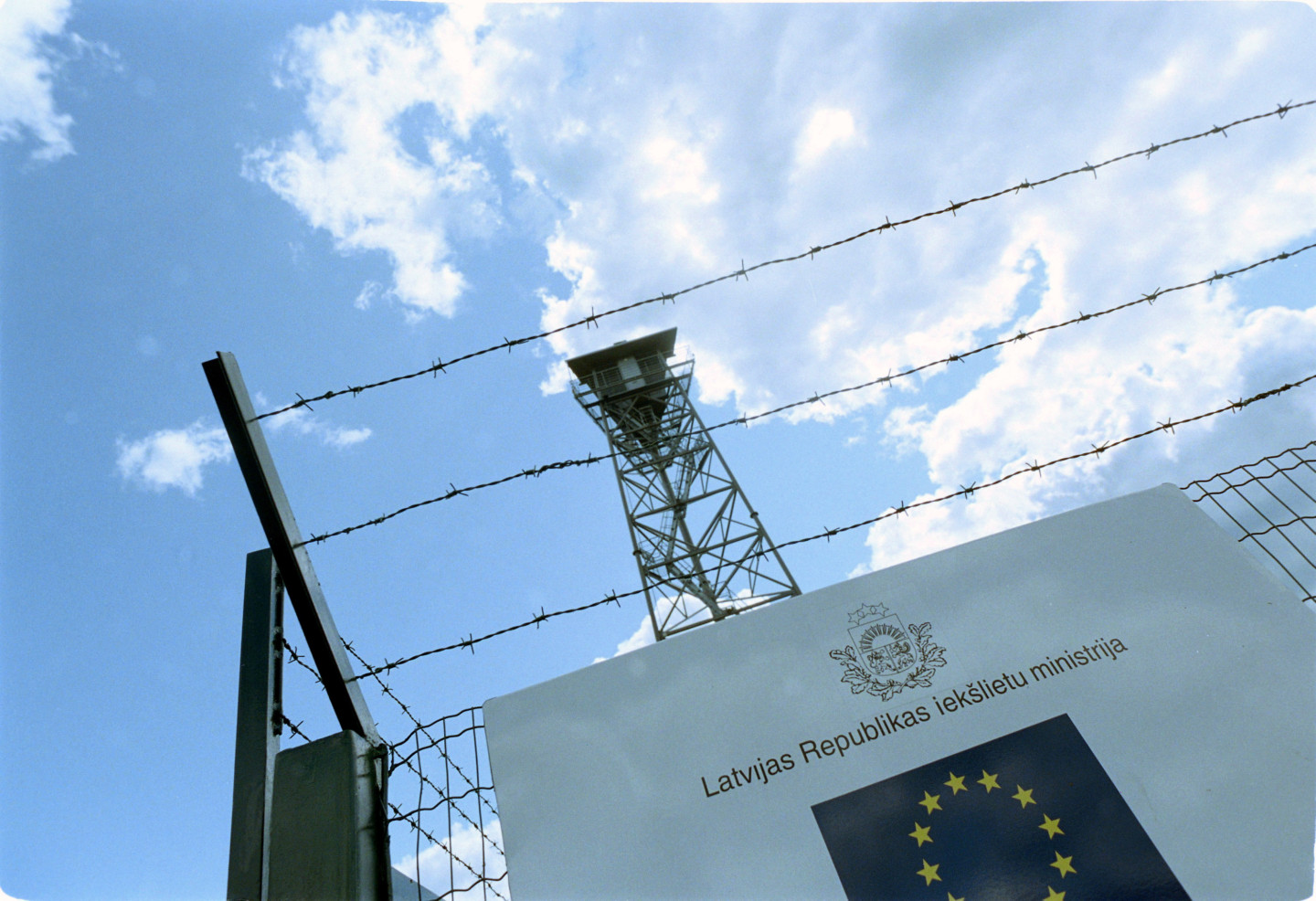Trump’s “Liberation Day” Tariffs Trigger Market Turmoil: Experts Advise staying the Course
Sweeping tariff announcements on Wednesday sent shockwaves through global markets, prompting advisors to urge calm and strategic portfolio management.
Published
Unprecedented Tariffs Spark Market Volatility
In what has been dubbed “Liberation Day,” president Donald Trump unveiled aggressive tariffs targeting numerous nations, triggering immediate and meaningful market reactions. The tariffs, reportedly averaging around 29%, represent levels unseen in nearly a century for the U.S. market. Specific levies included a 34% tariff on China, 24% on Japan, and 20% on the European union.
The immediate impact was felt across major U.S. stock indices. as of Thursday afternoon, the Nasdaq plummeted over 5%, the S&P 500 shed more than 4%, and the Dow jones Industrial Average declined by over 3%. The yield on 10-year Treasury notes hovered around 4%, while the VIX, a measure of market volatility, surged by more than 31%. These figures highlight the profound uncertainty gripping investors.
| Market Index | Percentage Change (Thursday) |
|---|---|
| Nasdaq | Down over 5% |
| S&P 500 | Down more than 4% |
| Dow Jones | Down over 3% |
| VIX (Volatility Index) | Up more than 31% |
Investment Advisors Urge Calm Amidst the Storm
Despite the market turmoil, financial advisors are largely counseling clients to maintain a long-term viewpoint and avoid knee-jerk reactions. Many firms have issued notes emphasizing the importance of staying the course and not making rash decisions based on short-term volatility. The consensus is that panic selling can be detrimental to long-term investment goals.
Gary quinzel, vice president of portfolio consulting at Wealth Enhancement, advised: We believe that investors in high quality, globally diversified portfolios should stay the course despite the potential for further price deterioration. Timing the market is nearly impractical and the market often swings wildly when uncertainty is this high. Missing just a few large ‘up days’ can have a meaningful impact on long term performance.
Finding Opportunities in the Volatility
While acknowledging the negative sentiment, some experts see potential opportunities arising from the market’s reaction. Ryan Detrick, Chief Market Strategist at Carson Group, pointed out the silver linings.
As bad as it feels,there are some positives out there and that is important for advisors to remind clients,” Detrick wrote. “Bonds are having a great year and finally providing some zig with stocks zag to help investors sleep at night. Not to mention after two amazing years, the U.S. is taking a step back, but the majority of global markets are still up nicely on the year, reminding everyone why it is indeed so critically important to stay diversified and not just chase the latest strong sector or shiny object.
Detrick highlights the importance of diversification and the potential for bonds to provide stability during equity market downturns. This perspective aligns with the core principles of modern portfolio theory, which emphasizes asset allocation to manage risk and enhance returns.
| Strategy | Description | Potential Benefit |
|---|---|---|
| Diversification | Spreading investments across different asset classes (stocks, bonds, real estate, etc.) and geographic regions. | Reduces risk by minimizing the impact of any single investment’s poor performance. |
| Rebalancing | Periodically adjusting the portfolio to maintain the desired asset allocation. | Ensures that the portfolio stays aligned with the investor’s risk tolerance and investment goals. |
| Tax-Loss Harvesting | Selling investments that have lost value to offset capital gains taxes. | Reduces tax liability and can improve after-tax returns. |
| Focusing on Quality | Investing in companies with strong balance sheets, consistent earnings, and reasonable valuations. | Provides a buffer against market downturns and offers long-term growth potential. |
A Wait-and-See Approach and Defensive Positioning
Merrill Lynch Chief Investment Officer Chris Hyzy echoed the call for patience.
given the current high level of uncertainty and the significant potential for change based on new deals,negotiations,and/ or targeted adjustments,it is indeed critically important to let the volatility settle down,and simultaneously occurring,prepare a plan to act on as the dark gray clouds fade away,” Hyzy wrote. ” In the coming weeks we favor a defensive approach that advocates allowing cashflow to build and to increasing positions where appropriate in more insulated sectors such as utilities and low volatility, high-quality exposure overall.
Hyzy advocates for a defensive strategy, suggesting investors build cash reserves and consider increasing exposure to sectors like utilities, which tend to be less sensitive to economic fluctuations. This approach aligns with the historical performance of defensive stocks during periods of market stress.
tariffs as a Negotiating Tactic?
A key consideration is the Trump governance’s history of announcing tariffs only to later modify or postpone them. Chris Fasciano, chief market strategist at Commonwealth Financial Network, suggests this may be a negotiating tactic.
Once again, the president appears to be using a tariff proclamation as a negotiating tactic in hopes of achieving a reduction in tariffs implemented by foreign countries, leading to better trade deals,” wrote Chris fasciano, chief market strategist at Commonwealth financial Network. “Until the end game is understood, uncertainty will run high. This is true for consumers making spending decisions, companies making capital project decisions, and investors making allocation decisions.
This perspective suggests that the initial tariff announcements should be viewed with caution, as the final outcome may differ significantly.Investors and businesses should closely monitor developments and be prepared to adjust thier strategies accordingly.
Fasciano further advised monitoring the responses of other countries: In situations like this, investors’ immediate reaction is to sell first and ask questions later. But doing so creates opportunities for long-term investors.Now is the time to look for those opportunities in global equity markets and the bond market.
He also emphasized the importance of rebalancing portfolios and seeking diversification, noting that History indicates that in times like this quality factors tend to outperform.Bonds are also a helpful part of portfolios because they tend to provide ballast during equity turmoil.
The importance of Sticking to a Disciplined Approach
Callan Family Office echoed the sentiment of maintaining a rational, disciplined approach.
One pillar of our approach is to not let emotions override our decision-making, and markets right now are moving more off guesswork and speculation,” according to the note. “Further, our advocacy of diversification should show its merits today, notably for those with bond allocations benefitting from lower yields. We also routinely use these moments to tax loss harvest and will do so again during this turbulence. These are our investing constants.
A Reversal of US-Led Globalism?
Michael Rosen, chief investment officer at Angeles Investments, offered a more critical perspective, questioning the long-term implications of the tariff policies.
The global economic system that pulled billions out of poverty, created new technologies that transformed nearly every facet of life in countless ways, was designed and led by the United States. The world’s prosperity has not been a zero-sum game, whereby gains for one country can come only from the losses of others. The global economic system, underpinned by the U.S. dollar as its reserve currency, solidified US economic dominance for generations while also producing wealth for every country that joined the U.S.-led framework. Apparently, we now want to blow all this up.
focus on Quality and Reasonable Valuations
Jeff Muscatello, vice president and research analyst at Douglass Winthrop Advisors, highlighted the importance of focusing on quality businesses with reasonable valuations.
In this habitat, equity investors should stay anchored in quality businesses trading at reasonable valuations. The market is rightfully penalizing companies that lack one—or both—of those characteristics,” Muscatello wrote. “this is a real test for investors who claim to have a long-term focus…. The market is exposing those who drifted from that discipline, and that dislocation could create opportunities for patient investors. We’re actively re-prioritizing our watchlist as opportunities present themselves.
Doubts About the Effectiveness of Tariffs
Peter Krull, partner and director of sustainable investing at Earth Equity Advisors, expressed skepticism about the tariffs’ ability to achieve their intended goals.
These tariffs are supposedly designed to bring manufacturing back into the U.S., and to raise revenue to pay for tax cuts. It’s unlikely to do either,” Krull wrote. “We rebalanced our fund portfolios this week with the possibility of tariffs in mind.Obviously, our more aggressive portfolios with higher allocations to stocks are going to be the most volatile. We’re keeping a close eye on markets, and continue to identify less-volatile alternatives and will use them where appropriate.
Krull’s concerns echo those of many economists who argue that tariffs can led to higher prices for consumers, reduced competitiveness for domestic industries, and retaliatory measures from other countries.








